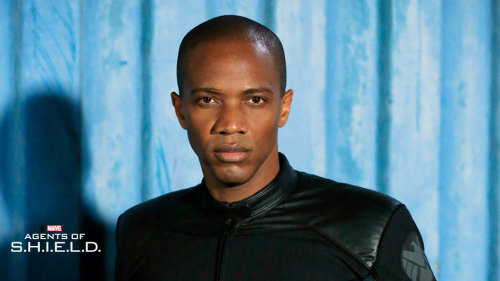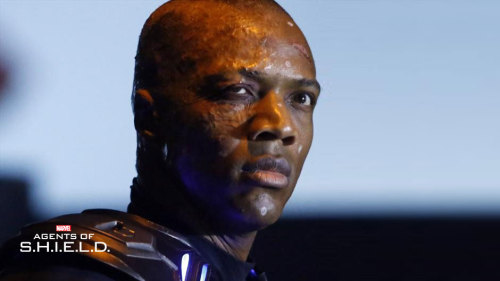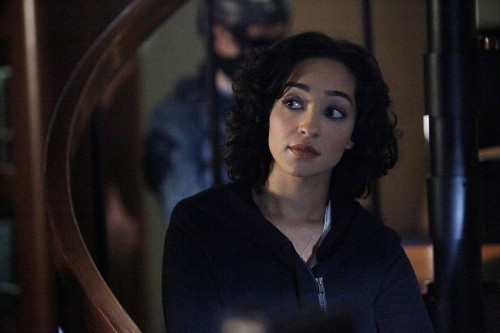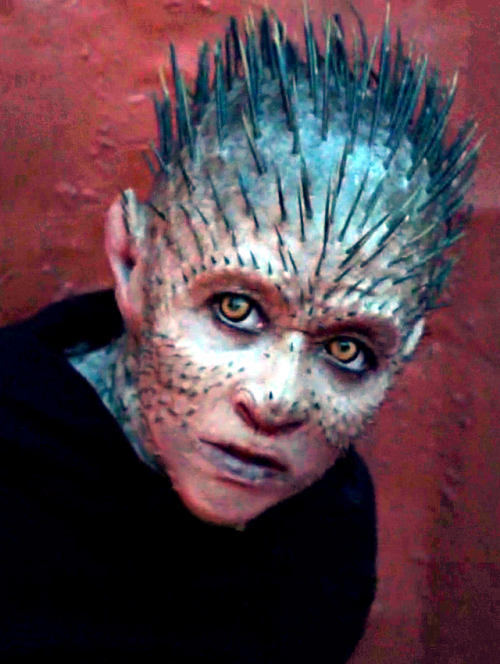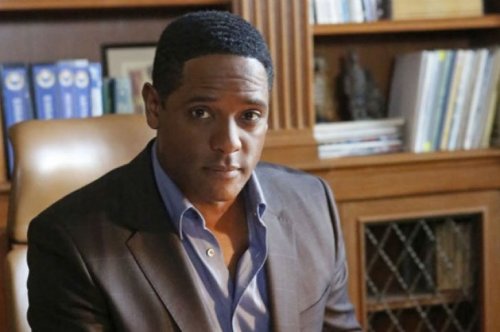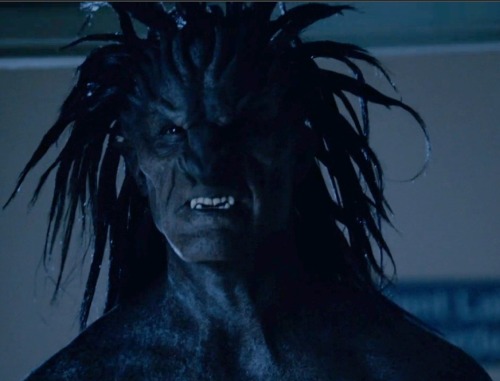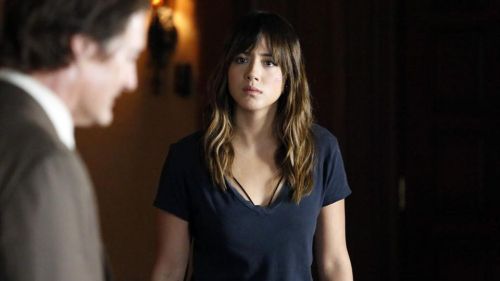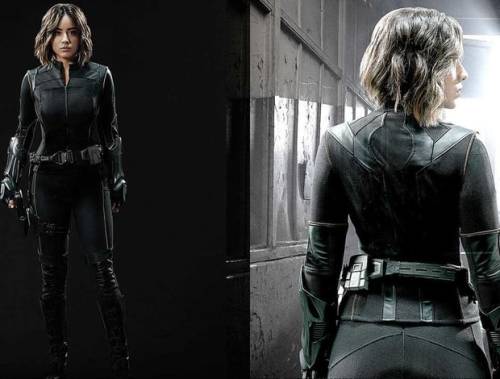
"JERICHO" RETROSPECT: (1.04) "Walls of Jericho"
The previous episode of CBS's "JERICHO" - (1.03) "Four Horsemen" - proved to be something of a disappointment for me. I felt certain that I would feel the same about the next episode, (1.04) "Walls of Jericho". Thankfully, my assumptions proved to be wrong.
I would never regard "Walls of Jericho" as one of my favorite episodes of the series, let alone the first season. But I have to give credit to screenwriter Ellie Herman for creating one of the stronger narratives among the series' first batch of episodes. "Walls of Jericho"not only proved to be a very solid episode with a strong and centered narrative, it also contributed a good deal to the series' overall narrative.
Jake Green and several other citizens of Jericho are at Bailey's Tavern, watching three scenes of a news report regarding the bombings over and over again, when the power dies. With no television to watch and no booze left, Mary Bailey orders everyone to leave. After Jake encounters schoolteacher Heather Lisinski on the street, they discover a man inside the local pharmacy, dying from radiation poisoning. With the help of Eric Green, Stanley Richardson and a few others; carry the man to the town's medical center. With no power for the hospital, Jake's sister-in-law, Dr. April Green reveals that gas is needed for the generator.
While Jake and his friends scour the community for gasoline, newcomer Robert Hawkins forces his family to rehearse the cover stories he had created for the new identities they have adopted. He is recruited by Deputy Sheriff Jimmy Taylor to help maintain the peace in town. They interrupt a party held by wealthy teenager Skylar Stevens and Robert is unpleasantly surprised to find his daughter Allison there. Jake and the others successfully find enough gas for the hospital. They also discover that the stranger's name is Victor Miller, who had been driving Shep Cale's truck when he arrived in Jericho. Shep had been one of the four men who had left town to discover information from the outside. It is believed he had committed suicide. And unbeknownst to Jake and the other Jericho citizens, Robert knows Victor Miller.
My main beef regarding the previous episode, "Four Horsemen" was its narrative. Although it continued the series' main narrative, it lacked a central plot of its own and the story seemed to be all over the map. I certainly cannot say the same about "Walls of Jericho". Two incidents contributed a great deal to the episode's narrative - the power outage and the discovery of Victor Miller. Both incidents led Jake Green and some of Jericho's other citizens to search for gasoline that could provide power to the local clinic. More importantly, Miller's presence in Jericho both centered the episode's plot, but also provided a major contribution to the series' main narrative - one that will resonate into Season Two. His presence also added another notch to the mystery that surrounded Robert Hawkins. Speaking of the latter, the search for gasoline and Miller's presence led Deputy Sheriff Jimmy Taylor to recruit Robert to temporarily help him maintain law and order in Jericho. And this act not only led Robert to reconnect with his daughter Allison in a very unexpected way, it will resonate later in the first season. See how everything seem to connect with the Victor Miller character and search for gasoline? This is why I feel that screenwriter Martha Mitchell made "Walls of Jericho" is one of the stronger episodes of Season One's first half.
The episode also featured some very memorable scenes that featured strong acting. If I must be frank, I was not that impressed by the Green brothers, Stanley Richmond and Heather Lipsinski's search for gasoline. It seemed like the typical scramble for resources and survival that marked Season One's early episodes. However, I do admire how the screenwriters allowed this search added to one more notch in the decline of Eric and April Green's marriage. I thought it was a very subtle move on their part. "Walls of Jericho"did feature some very powerful scenes. One of them proved to be a minor scene between Robert and his young son, Samuel. It was such a minor moment near the end of the episode, yet it revealed just how damaged Robert's relationship with his family really was. Even more interesting proved to be Robert's interrogation of Victor Miller, once he found himself alone with the latter. I found it interesting due to Robert's discovery that a traitor existed within the mysterious group to whom he belonged. Yet, he later discovers that his son harbors very little trust in him.
Another powerful moment featured a debate over whether or not to feed the dying Miller a drug to gather more information from him. Jake, Robert and Eric wanted to use the drug to revive Miller's consciousness in order to learn more information - even if this act will cause him pain. As a doctor, April opposed this action on the grounds of compassion. The conflict between pragmatism and compassion resonated strongly in this scene. This same conflict also played a part in a scene in which Jake had to shame Jericho's citizens into helping him search for a group of survivors that also might be dying from radiation poisoning, and in Gracie Leigh's refusal to contribute gasoline for the town's power generators. It is interesting how these three scenes featuring pragmatism vs. compassion ended differently. This conflict will prove to have a major impact on Gracie's story line, later in the season.
I have very few problems with "Walls of Jericho". Actually, I only have two. If it were not for how it affected Eric and April's marriage, I found the gasoline search rather unoriginal and a little sophomoric at times. This episode also marked the showrunners' continuing attempt to create a romance between Jake and Heather - especially in a scene in which she unexpectedly encounters him leaving one of the clinic's showers. And despite the presence of a half-nude Skeet Ulrich, I still failed to sense any romantic spark between the pair. What can I say? Jake and Heather tend to generate a sibling-like vibe.
Thanks to a strong narrative and interesting subplots, "Walls of Jericho" featured some first-rate performances from members of the cast. I was especially impressed by Kenneth Mitchell and Darby Stanchfield as Eric and April Green, Jazz Raycole as Allison Hawkins, Beth Grant as Gracie Leigh, and Candace Bailey as Skylar Stevens. But I believe the best performances came from Skeet Ulrich - especially in the scene in which Jake shamed the town's citizens for their lack of compassion; Adam Donshik, who had to portray the dying Victor Miller; and Lennie James, who added more depth to the mysterious aura of Robert Hawkins.
Although "Walls of Jericho" featured an uninspiring potential romance and a search for gasoline that failed to grab me, I must say that it proved to be one of the stronger early episodes of "JERICHO". I have to credit fine performances from a cast led by Skeet Ulrich and Lennie James and a very strong narrative written by screenwriter Martha Mitchell for making this episode very fascinating . . . at least for me.


























